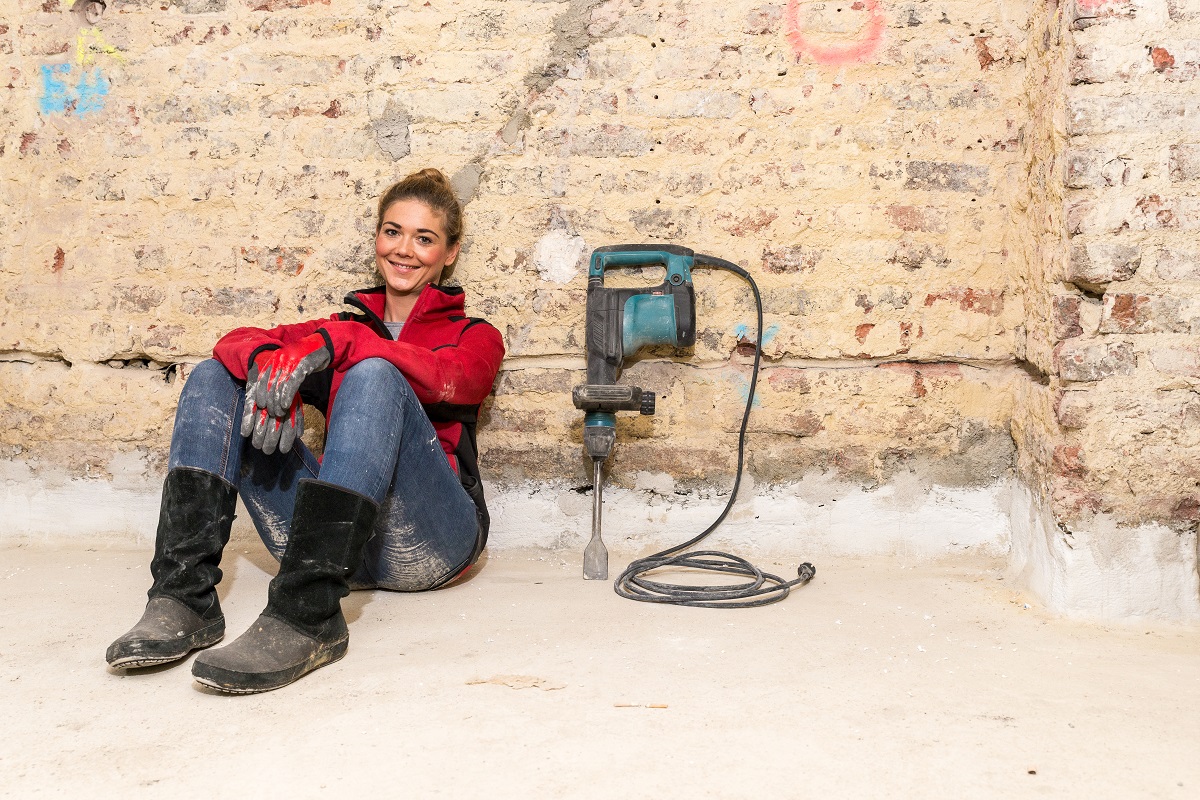If you’ve ever been tempted by the prospect of a property that needs work – a lot of work – you’ll know that rush of excitement. And that feeling of trepidation. But the rewards can be great.
We have thought of some property renovation tips for when buying a renovation property.
‘You’ve got to have nerves of steel to get stuck in,’ says Edward Hartshorne, Managing Director of Blenkin & Co estate agents in York. Edward is also more than a year through his own renovation project. ‘It is relentless and stressful but if you’ve got it in you, you’ll end up with something special and you get absolutely what you want.’
Here are some top tips that will give you food for thought on your adventure turning that wreck into something remarkable.
Think about your budget
Working out what you can afford is obviously the first step. Edward Hartshorne says that you’ll effectively save on stamp duty, which gets higher as the cost of the property increases. And so if you buy a house that needs work at a reduced price that could one day be worth much more, you’re essentially saving money in the long run.
But don’t forget, with a renovation project, you may need to pay for things you didn’t anticipate, such as a collapsed joist or woodworm. ‘There are always unseen things and you’ll never stick to your budget,’ warns Edward. And so it’s a good idea to build in some flex. Edward advises ‘working out your budget to the last penny and adding 20%.’ You’ll need to think about whether you’re doing the work yourself, plus surveys, architects, builders and more.
The Money Advice Service highlights some of the repairs that can be pricey to fix in a new home, including damp, missing roof tiles, plumbing and rotten window frames. You might also need to rewire the electrics. And don’t forget to ask yourself if you’re going to live in the property. If not, you might need to pay for a mortgage and rent.
Speaking of which, it’s important to mention that borrowing money from a lender isn’t guaranteed for all properties. For example, the Lincolnshire house above specifies that its condition means potential buyers won’t be able to get a mortgage. But, says Edward, there are lenders and products out there that do cater to different scenarios.
Viewings
Taking along a friendly builder and/or building surveyor to a viewing will help you get a sense of the renovation costs.
For example, Edward says that most independent building surveyors would visit a property with you for a ‘walk around’ at a cost of about £200-£300 and can then follow-up with rough costs for the work (ie not a full report). You can then use that information to make a decision about whether or not to buy a property. And if you find a surveyor you feel you can work with beyond the purchase, it will help the process go smoothly.
You can also talk to an estate agent about whether your plans for the renovation will add value or ultimately make the property less appealing through over-development, says Edward.
Making an offer
If you’re confident you can afford your project, how do you decide whether to take the plunge? Here are some top tips from Edward:
– Never underestimate the hard work. Personally, we will have had two years of traipsing through mud at 7am in the morning. We’ve been living and breathing it.
– Don’t underestimate the costs. Go over the numbers three, four, five times. There won’t be second chances.
– Go with your gut. If you like the house, it’s in an area you want to live in and you’ve got a good idea of what to do, follow that gut feeling.
– But in the same breath, don’t be completely reckless. You need to appeal to your head and heart.
Building work, planning and building regulations
Once your offer has been accepted, Edward advises organising a full building survey from a qualified building surveyor, particularly for period projects. This may throw up any issues you need to go back to the seller on and come to an agreement over.
Edward says for a ‘serious project’ (ie one that costs six figures or more), it’s worth having a quantity surveyor as they effectively manage the finances. ‘Any money you spend on a quantity surveyor, you will get back,’ he says.
At this point, you can organise quotes from builders and the quantity surveyor can help you manage that process. Edward advises avoiding day rates for builders, rather agreeing on a fixed price for the project.
And if you’re planning on extending and significantly remodelling, he says it’s worth getting an architect on board.
Whether you’ve decided to do the work yourself or you’re outsourcing to professionals, there are rules around planning and building regulations to be aware of. Start with the government’s Planning Portal (England and Wales). And check the Local Authority Building Control website (also England and Wales) to see what work will need approval. If the property is listed, read our dedicated guide.
Don’t forget to start your search at OnTheMarket. Create an alert now.
Lastly, best of luck!






